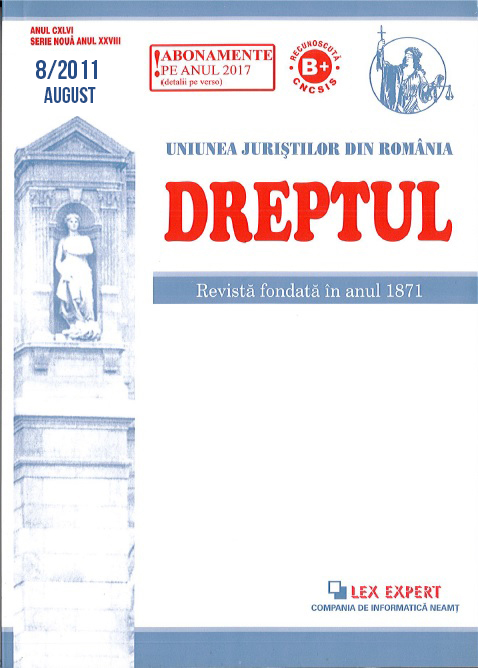The article analyzes the regulation of trial when admitting guilt and the practical consequences resulting from this procedure. Admission of guilt can be made either by statement of the defendant in court, or under writ, in which case the proceedings may take place without the presence of the defendant. In terms of object of admission, out of the marginal terms of wording under Article 3201 Code of Criminal Procedure Code, it appears that it refers to “guilt”, but from the reading of paragraph (1) of the said wording it appears that admission refers to “committing acts written down in the document instituting the proceedings”. Should we relate this regulatory text to the provisions of Article 263 par. (1) Code of Criminal Procedure, regulating the indictment contents, it is clear that admission is limited to committing the crime exclusively, failing to refer to the legal classification granted under the document instituting the proceedings or any other person to which it relates. Article 3201 in the Code of Criminal Procedure is, as evidenced by the mere reading of its wording, of its marginal name and the topography of the Code of Criminal Procedure, undeniably, a procedural rule designed to accelerate the settlement process and not a rule of substantive criminal law. Bearing this legal nature, the authors argue that Article 3201 Code of Criminal Procedure can not be considered a more favourable criminal law (mitior lex), its provisions falling outside Articles 13-15 Criminal Code.
PROCEDURA SPECIALÃ DE JUDECATÃ REGLEMENTATÃ DE ART. 3201 DIN CODUL DE PROCEDURÃ PENALÃ
15.00lei
Categorie: Nr.8/2011


